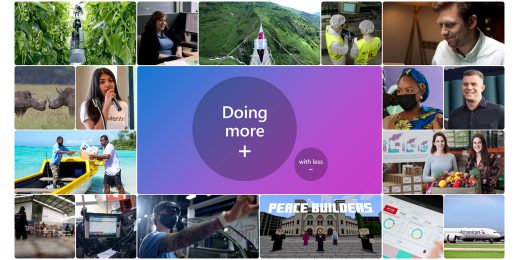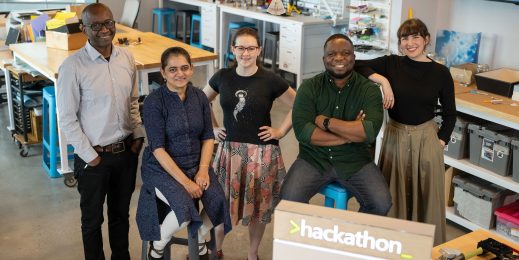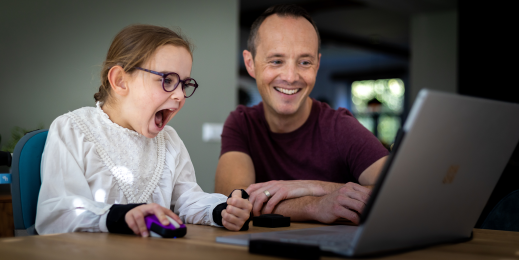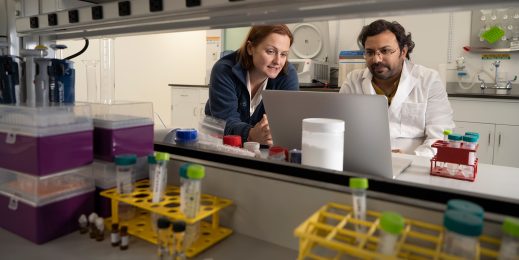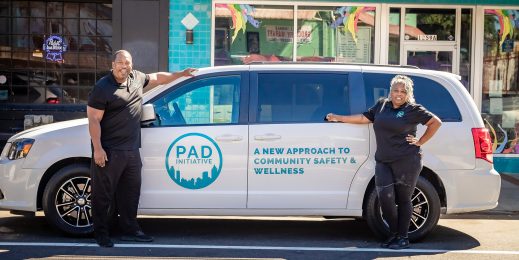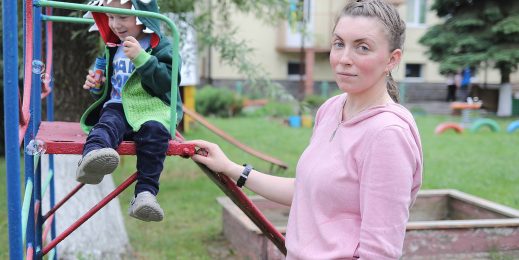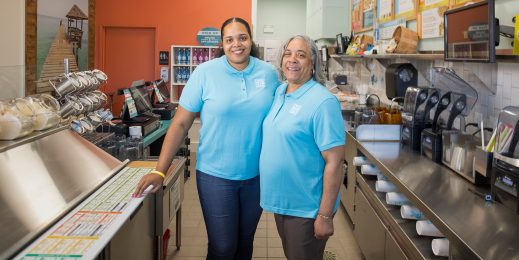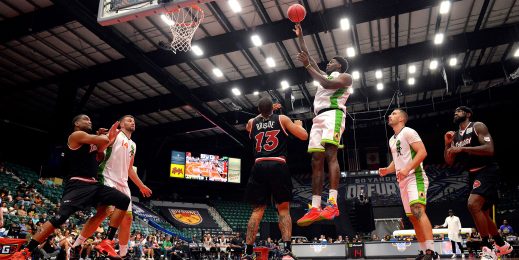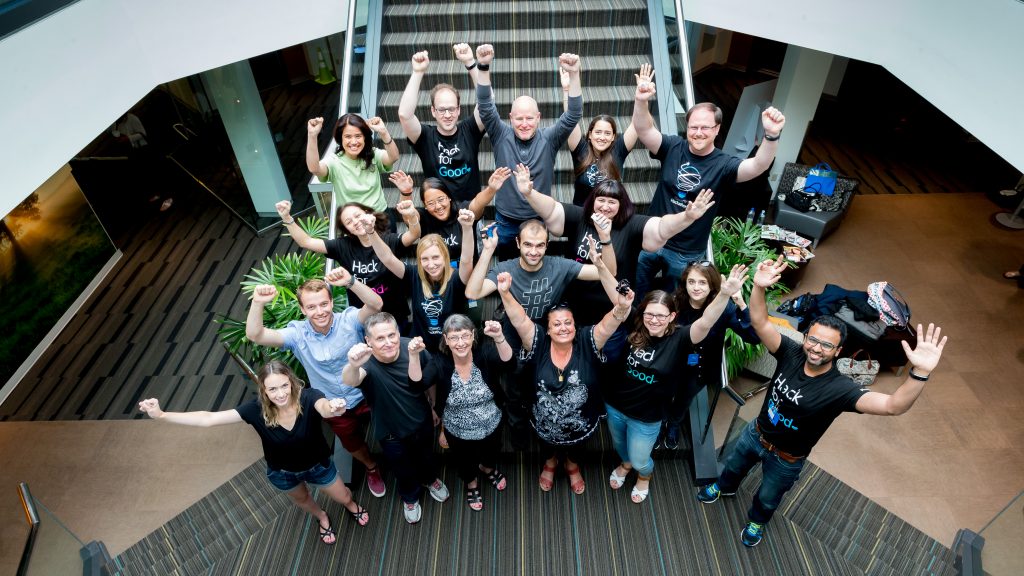
Hack for Humanity’s do-gooders are using their skills to bring a world of help to refugees
In answering a call to conscience, one person can make a big difference.
For more than five years, Rita Zawaideh, founder of the nonprofit Salaam Cultural Museum Medical Missions, has helped coordinate short-term clinics and humanitarian relief in Jordan and Greece for men, women and children fleeing conflict and natural disaster within the Middle East and North Africa regions. At times, these teams of professional healthcare volunteers from all over the world took care of as many as 700 patients per day and acted as first responders treating serious injuries from thousands arriving on rafts. They provide medications for prescriptions, distribute cans of baby formula and deliver healing supplies to refugees. All of those supplies and services come through donations, fundraising campaigns, clothing drives and travel connections.
“When you’re seeing humanity being destroyed, you have to do something,” says Zawaideh, who has operated the Seattle-based Caravan-Serai Tours for more than 30 years. Before that, she lived in Syria for 11 years while she was married and raising a daughter. “This is one of the biggest humanitarian crises in the world.”
Although she has a core group of dedicated volunteers, it’s up to Zawaideh to oversee all these moving parts on her own time and dime – until now.
In answering a call to use Microsoft’s technology to help solve the world’s greatest societal challenges, 28 people she’s never met are working to help her make an even bigger difference, by volunteering their skills and resources in marketing, education, data science and connectivity.
Knowing her resources are extremely limited, Hack for Humanity, a project with Microsoft employees and interns working as a team under the umbrella of the Hack for Good challenge, wants to help make SCM Medical Missions easier for her to handle. They’re tackling several areas methodically, with several work streams that converged during the annual //oneweek Hackathon in Redmond, Washington.
The team aims to deliver tools that include simple questionnaires to track volunteers and supplies that feed into real-time Power BI dashboards; educational resources for adults and children; Windows Phone devices; internet access; and marketing strategies to drive increased traffic to their website and social channels.

This idea began with a springtime donation of dishes to help a resettled refugee family. During that visit, the team’s overall project manager, Kristine Bikdash, talked with Zawaideh about SCM’s wide-ranging programs to support refugees in Greece and Jordan. Bikdash had followed SCM for many years through their work in the Zaatari refugee camp in Jordan and in Greece at Lesvos as first-responders to the boats coming from Turkey.
“They provide pictures of medicines purchased, clinics in process, food distributed, school supplies being given to kids, handmade hats and blankets handed to mothers. I know that when I donate to SCM, the people I intend to help receive 100 percent of my funds or goods. With minimal administrative support, I couldn’t think of a more deserving organization for help from Microsoft,” says Bikdash, who works with customer data and analytics at Microsoft. “I also knew that SCM would make the most of the project(s) we would create and be keen to implement, as they are nimble and able to try new ideas that would come from a hackathon. I wanted to do a Hack for Good project because it’s an awesome opportunity to give our time back to something that matters.”
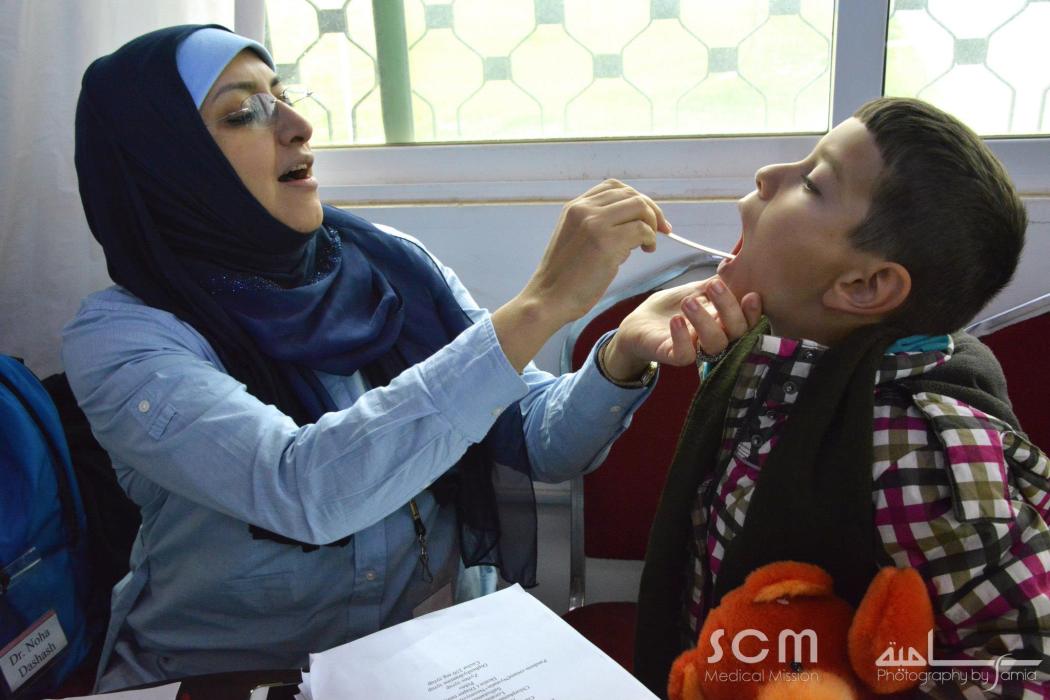
Bikdash wanted to help, but wasn’t sure how until Zawaideh mentioned that another Microsoft supporter, Shada Al-Nasser, had brought up the //oneweek Hackathon and Hack for Good to her. But Zawaideh wasn’t sure how to engage with a large company like Microsoft and didn’t know what a hackathon was. Since Bikdash had participated in hackathons before – including developing an internal data visualization tool during the //oneweek Hackathon two years ago – she immediately realized the potential and got the ball rolling to help SCM, especially since Al-Nasser is running her own Hack for Good project to support refugees (Volunteer your Voice).
For Zawaideh, who had associated hackathons with hacking into computers, working with this expansive team has been an eye-opener.
“They’re pointing me in the right direction. I think they understood more than I did what SCM needs,” she says. “I’m learning how to better accomplish some of what I want to do and get to a wider audience.”
Hack for Good is a Microsoft Philanthropies program that has connected many local nonprofits with Hackathon teams this year. The effort has helped nonprofits scope projects and pitch employees, while encouraging employees to volunteer their professional and tech skills and time to solve society’s toughest problems.
It started in 2013 as a grassroots effort to connect all the various teams and people within Microsoft who were working on using their skills and our technology for social good. Since then it’s grown to a worldwide community of more than 1,500 employees. In 2016 Hack for Good developed a formal partnership with the Microsoft Garage, the outlet for Microsoft teams around the world to get experimental apps and projects out to the public. This year, out of 3,200 Hackathon entries, nearly 500 fall under the Hack for Good executive challenge issued by Brad Smith, Microsoft president and chief legal officer. It has the most employees and projects of any other executive challenge.
“People are really taking to heart that they can do something good with their skills,” says James Rooney, who has organized Hack for Good for Microsoft Philanthropies for //oneweek Hackathons since 2014. “They’re answering the challenge and realizing they can have an impact on their community, neighborhood and Microsoft products in a way that has a positive social impact on the world. We’re providing an easy opportunity to engage in that way and pursue ideas that are big and bold.”
Every Tuesday night in June, Microsoft Philanthropies and Hack for Good hosted a pitch night for nonprofits. Each of those nights, six came in to deliver five-minute pitches to a packed room of employees and interns looking for projects and causes to collaborate on. Thanks to Microsoft’s extensive work with Puget Sound nonprofits, they were able to reach a wide swath of organizations that responded to a call for a half-day training about hackathons at the end of May. Out of 60 that participated in that training, 34 of them ended up working with //oneweek Hackathon teams. Bikdash helped prep Zawaideh for her pitch, boiling down 15 minutes’ worth of material into five. Microsoft’s Silicon Valley campus also did their own pitch nights, and the Vancouver (British Columbia), United Kingdom and Beijing campuses drove employee Hack for Good efforts.
Teams then had about a month to work with their nonprofits, so that by the time they arrived at //oneweek, they knew what the problems were and had a plan to solve them.
“This is the first time many of us are meeting in person, so it’s a great experience,” Bikdash says. “We instantly gelled and started working on our parts of the project.”
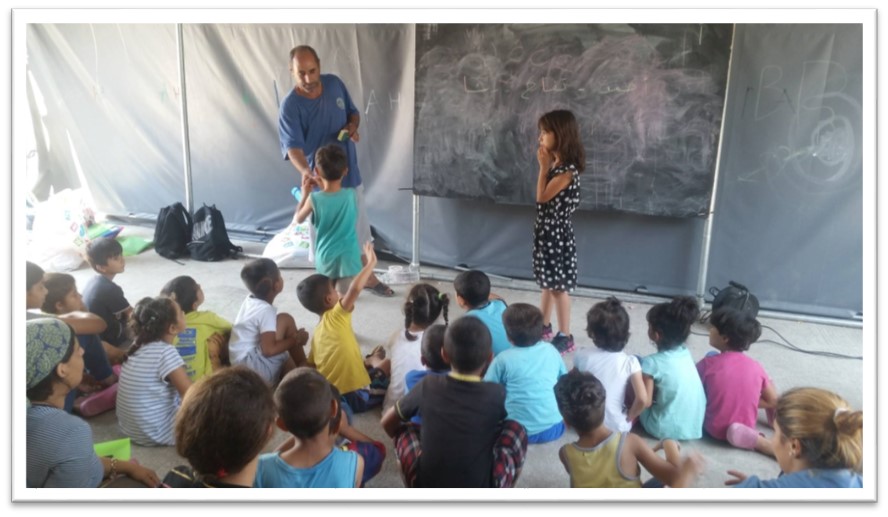
Andrea Houchens, a human resources development program intern at Microsoft who is pursuing an MBA at Brigham Young University, is taking the lead on gathering resources for career development and placement for adults; and apps teaching math, English language, literature (Arabic) and perhaps German language, for children in the camps. Zawaideh says that since the camps in Greece have become more long term for refugees, they need this to be able to better contribute to the country they eventually resettle in.
For Houchens, a first-time Hackathon participant, this project has been an experience that revealed the value of cross-company collaboration.
“I think it’s really inspiring to look around the tent and see hundreds of people at work and collaborating,” says the former high school English teacher, who grew up in Bellevue and also has a master’s degree in teaching. She is working on outreach with the Global Diversity and Inclusion group as part of her internship. “What I am impressed by is how many people are coming together to solve this problem and bringing what they own to the problem. The team is so strong because of its interdisciplinary nature. The convergence of backgrounds is phenomenal.”
For Jenerra Loken, who works with Bikdash through the marketing operations team, SCM appealed as a small organization.
“I’ve been very interested in helping nonprofits, and I lead the Hour of Giving, a new initiative within marketing doing skills-based volunteering. I was excited to be able to participate even as a non-developer, I’ve never written a line of code in my life. I’m thrilled to be part of a hack where I can do something marketing related, which is what I’m passionate about, and helping a nonprofit, which I’m also very passionate about,” says Loken.
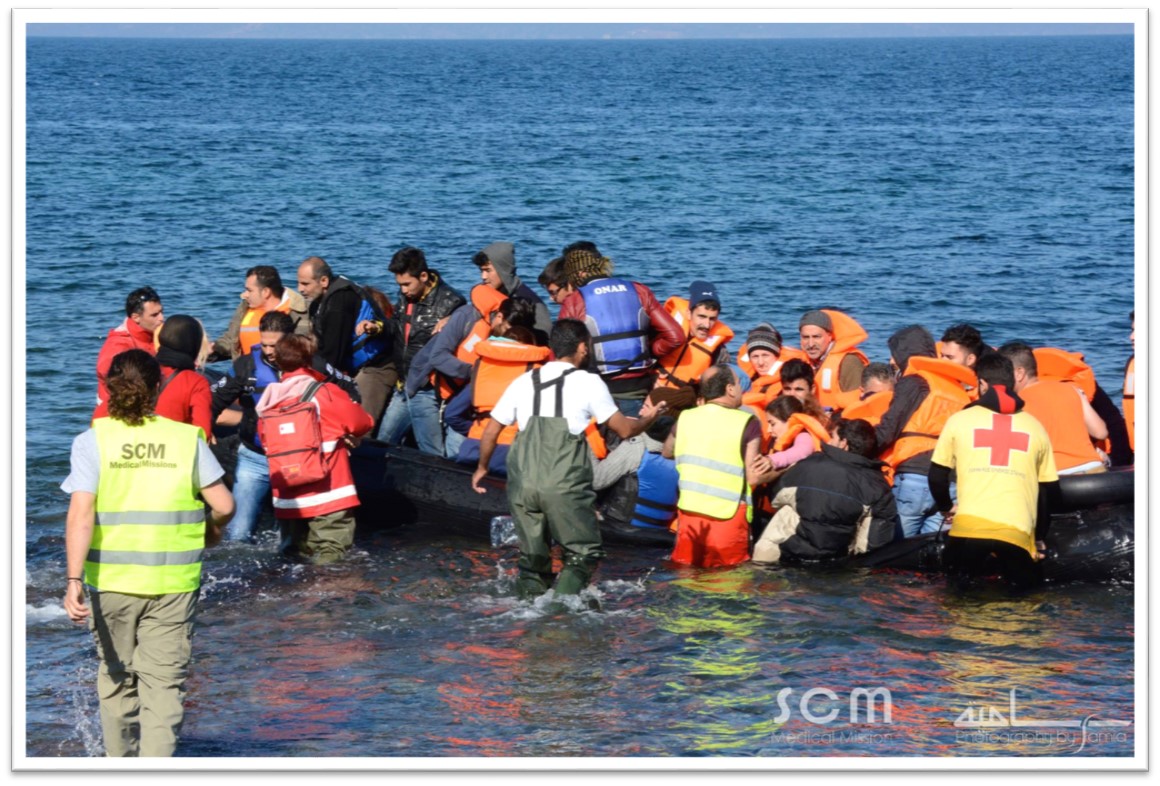
Zawaideh and SCM Medical Missions resonates with Hack for Humanity team members.
“She’s one person trying to help solve the world’s problems. And there’s such a refugee crisis going on today, and my heart is about data and how can you tell stories with your data that could provide actual insights, so that the more you’re able to see what’s going on, even if you’re not on the ground, you can make better actions and decisions,” says Amy Gillespie of Zawaideh. Gillespie is a data analytics program manager in Corporate and External Legal Affairs Trustworthy Computing and the lead for developing the project’s humanitarian impact app, which will give SCM a digital alternative to tracking volunteers, supplies and donors – as opposed to hard copy paper they’ve been using. “The more we see the world having issues, the more we say is there something we can do with the skillsets we have to help others?”
The team also drew members from all over the globe, including the Middle East and the U.K.
“Humanitarian issues have become a big priority and opportunity for Microsoft – it’s the truest form of our mission statement,” Kate Krukiel, Microsoft’s London-based director of strategic partnerships for the United Nations. She supports the UN with how they’re using technology to achieve their mission and mandate. For the project, she took the lead on connectivity and finding donated devices to route to SCM. “We have more assets and tools that can help, whether it’s migration, or refugees, or disaster emergency response. Connectivity is core to enabling any displaced person; it’s your livelihood, how you get information, find family and friends, obtain education or health information. When this project came up, I thought it was a natural fit and eager to extend my day job into helping passionate colleagues support this cause. Access and connectivity in these situations can range from the best case of Wi-Fi access on their own devices down to community centers and kiosks where we can help support via Skype Vouchers. Across Microsoft we are focused on a myriad of options from next generation connectivity using TV White Spaces down to device donations and Skype to help refugees stay empowered.”
For Bikdash, Hack for Good and this project embodies a cultural spirit of people working together.
“I only knew four people on this team before we started the project. So many barriers have been broken down internally since Satya’s been CEO. The company to me has become a much smaller place, with more people working together to drive impact from a common place without so much competition. I’ve seen a huge change in the culture,” says Bikdash, who’s been at Microsoft for four years. “We’ve become more data driven, but from a place of customer understanding, which is a fantastic place to be for corporate growth.”
The work they’re doing is something Zawaideh is hopeful will make a lasting impact on her organization.
“We can find out what medications we’re running out of, what symptoms are in the camp, so we’d know from the start and can deal with epidemics sooner. We have the potential to get better organized and get information to other groups. We can get to people who want to help but don’t know how,” she says. “But most of all, they’ve built up my spirits to keep on going.”
Lead image: Hack for Humanity team at the 2016 //oneweek Hackathon, along with volunteers from SCM Medical Missions. (Photo by Scott Eklund/Red Box Pictures).






